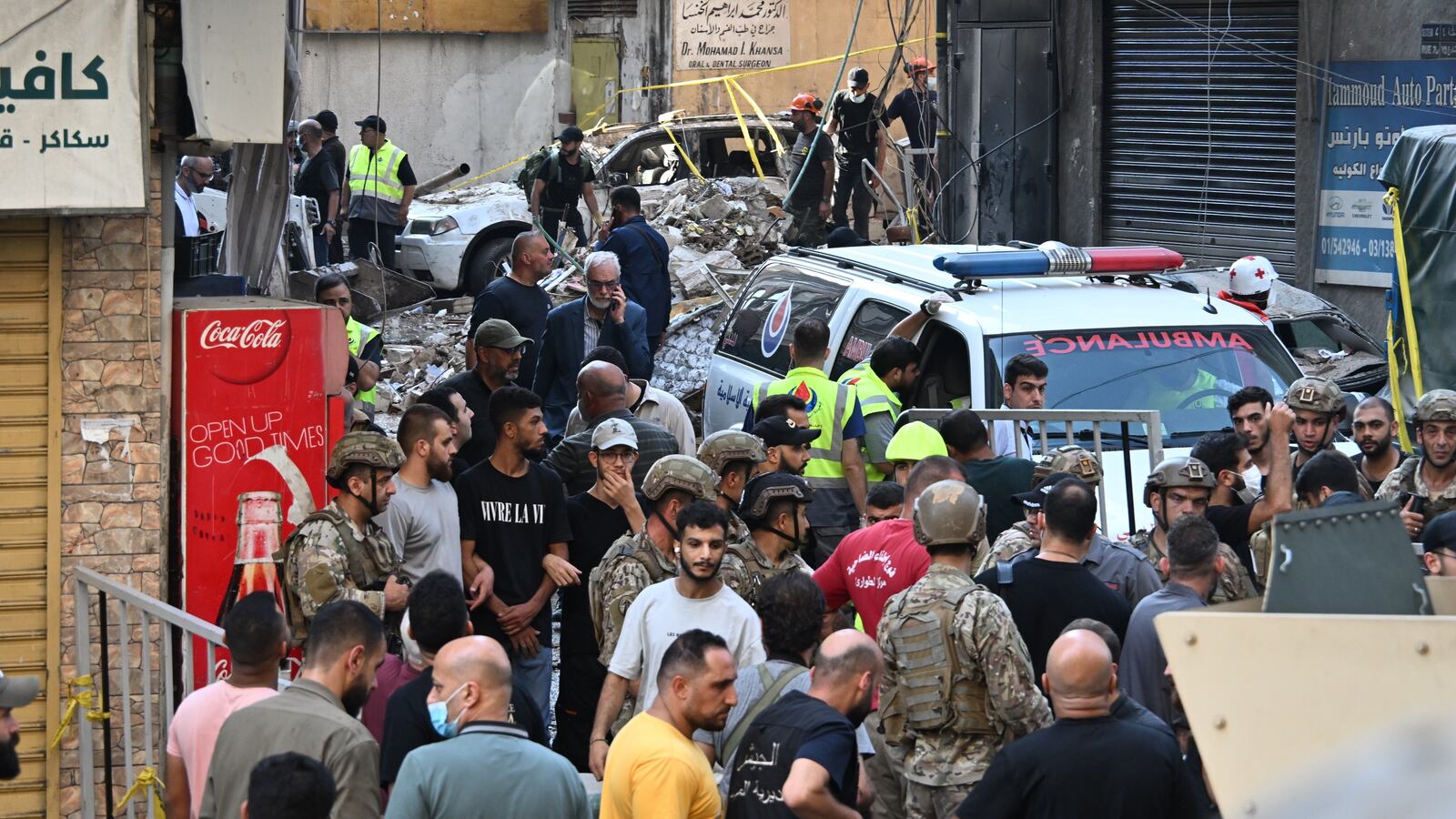Israel and Hezbollah attacked each other again Tuesday the day after massive Israeli airstrikes in Lebanon left over 500 people dead, fueling fears that a wider full-scale war could be about to erupt.
Six people were killed in a new Israeli airstrike targeting a Hezbollah commander in Beirut Tuesday, security sources told Reuters, while the Iran-backed group said it had unleashed barrages of rockets at a military base and a city in northern Israel.
The cross-border bloodshed has dramatically escalated concerns that the U.S., Israel’s ally, and Iran could be drawn into a larger regional conflict after almost a year of Israel’s war against Hamas—another group supported by Tehran—in Gaza.
Asked if Iran would advise Hezbollah to act with restraint, President Masoud Pezeshkian told CNN that Islamic countries must come together to “formulate a reaction” to what is occurring and appeared to hint that Iran was ready to join in.
“We must not allow for Lebanon to become another Gaza at the hands of Israel,” Pezeshkian said, according to the network’s translation of his comments. “Hezbollah cannot do that alone. Hezbollah cannot stand alone against a country that is being defended and supported and supplied by Western countries, European countries, and the United States of America.”
Jake Sullivan, the White House national security adviser, separately said Tuesday that the Biden administration has had moments since Hamas’ Oct. 7 attack on Israel where fears have “spiked” that a “broader regional conflict” could break out.
“It spiked in the days following Oct. 7,” Sullivan told MSNBC. “It spiked again in April when Iran launched 300 missiles and drones and we defeated that attack. And it’s spiking again now—but we have averted it in those previous spikes and I believe that we can still find a path forward to get de-escalation… across that northern border between Israel and Lebanon, and bring about a diplomatic solution that allows people to return to their homes.”
As yet, diplomatic attempts to reduce recent tensions in the region seem to have had little effect. A huge Israeli bombardment in Lebanon Monday killed almost 560 people, according to Lebanese officials, in the greatest loss of life in the country in a single day since Hezbollah’s war against Israel in 2006. Almost 2,000 others were injured while tens of thousands more fled their homes in search of safety.
Those strikes came the week after Hezbollah suffered major losses as its members’ pagers and walkie-talkies exploded across Lebanon in a devastating attack. The group blamed Israel for the operation—Hezbollah’s most serious security breach in history. Israel has not claimed responsibility.
On Tuesday, Hezbollah’s media office claimed Israel was dropping leaflets containing a “very dangerous” barcode on Lebanon which, if scanned, would “withdraw all information” from any device, according to Reuters.







